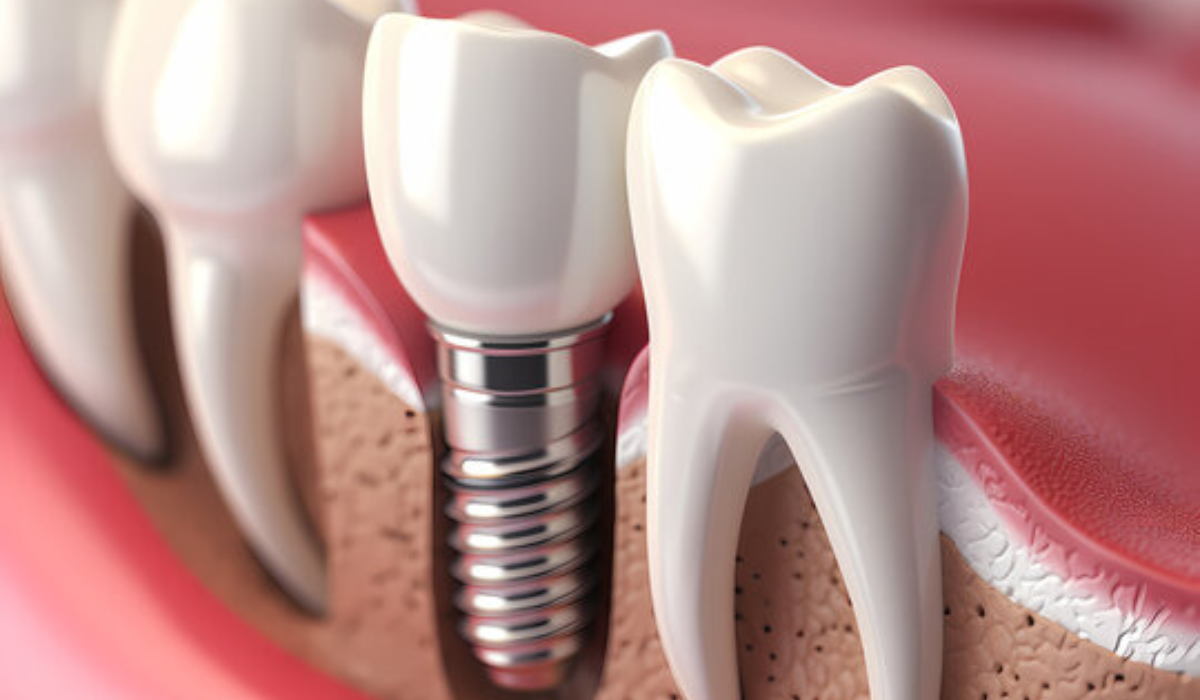
The Ultimate Guide to Dental Implants: A Permanent Solution for Missing Teeth
Dental health is essential to overall well-being, and missing teeth can significantly impact not just your smile but also your ability to eat, speak, and maintain self-confidence. Dental implants have emerged as a revolutionary solution for restoring missing teeth, offering a permanent and natural-looking option for individuals seeking to reclaim their oral health.
In this comprehensive guide, we will explore what dental implants are, their benefits, the procedure, and how they compare to other tooth replacement options.
What Are Dental Implants?
Dental implants are artificial tooth roots made of biocompatible materials such as titanium. They are surgically inserted into the jawbone to provide a stable foundation for replacement teeth, such as crowns, bridges, or dentures. Unlike traditional dentures or bridges, implants are designed to fuse with the jawbone over time, mimicking the function and appearance of natural teeth.
The Benefits of Dental Implants
- Natural Appearance and Functionality
Dental implants closely resemble natural teeth in appearance and functionality. Once the crown is attached, the implant is virtually indistinguishable from your real teeth, ensuring a seamless smile. - Durability and Longevity
With proper care, dental implants can last a lifetime. Unlike dentures that may need periodic replacement, implants are a long-term solution, making them a cost-effective option over time. - Improved Oral Health
Implants do not rely on adjacent teeth for support, unlike dental bridges. This helps preserve the health of surrounding teeth and prevents unnecessary wear and tear. - Bone Preservation
Missing teeth can lead to bone loss in the jaw due to a lack of stimulation. Dental implants provide the necessary stimulation to maintain bone density and prevent facial sagging, which can occur with prolonged tooth loss. - Enhanced Comfort and Confidence
Implants are securely anchored in the jawbone, eliminating the discomfort and inconvenience associated with removable dentures. They also restore full chewing power, allowing you to enjoy your favorite foods without restrictions.
The Dental Implant Procedure
The process of getting dental implants typically involves several stages and may take a few months to complete. Here’s what to expect:
- Initial Consultation
The journey begins with a consultation with your dentist or oral surgeon. During this visit, your dental health is evaluated, and imaging like X-rays or CT scans is conducted to determine the condition of your jawbone and overall suitability for implants. - Preparation
If your jawbone lacks sufficient density, a bone graft may be required to create a solid foundation for the implant. Other preparatory procedures, such as tooth extractions or gum treatments, may also be necessary. - Implant Placement
The implant is surgically inserted into the jawbone under local anesthesia or sedation. Over the next several weeks to months, the implant undergoes osseointegration—a process where it fuses with the jawbone to provide stability. - Abutment Placement
Once the implant has fused with the bone, an abutment (a connector piece) is attached to the implant. This serves as the base for the crown or prosthetic tooth. - Crown Placement
The final step involves attaching a custom-made crown to the abutment. The crown is designed to match the size, shape, and color of your natural teeth, ensuring a perfect fit.
Who Is a Candidate for Dental Implants?
While dental implants are suitable for most people with missing teeth, certain factors may influence your candidacy:
- Sufficient jawbone density is crucial for supporting the implant.
- Good oral health, including healthy gums, is essential for a successful outcome.
- Non-smokers generally have higher success rates, as smoking can hinder the healing process.
- Chronic conditions such as diabetes or heart disease should be well-managed before undergoing the procedure.
How Do Dental Implants Compare to Other Options?
- Dental Bridges: While bridges are less invasive and more affordable upfront, they require the alteration of adjacent teeth and typically last 10-15 years, unlike the long-lasting nature of implants.
- Dentures: Although dentures are more cost-effective, they can be uncomfortable, require regular maintenance, and do not prevent bone loss in the jaw.
- Implants: Though initially more expensive, implants are a one-time investment that offers superior durability, functionality, and aesthetics.
Caring for Dental Implants
Maintaining dental implants is similar to caring for natural teeth:
- Brush and floss daily to prevent plaque buildup.
- Visit your dentist regularly for checkups and cleanings.
- Avoid chewing on hard objects like ice or pens to prevent damage to the crown.
- Quit smoking to promote healing and long-term success.
Conclusion
Dental implants are a transformative solution for individuals seeking to restore their smiles and oral functionality. By offering a permanent, durable, and aesthetically pleasing option, implants have revolutionized modern dentistry. Whether you’ve lost teeth due to injury, decay, or aging, dental implants can help you regain confidence, improve your quality of life, and maintain long-term oral health.
Consult your dentist today to explore how dental implants can be the right choice for you. Transform your smile and enjoy the benefits of this remarkable innovation in dental care.
